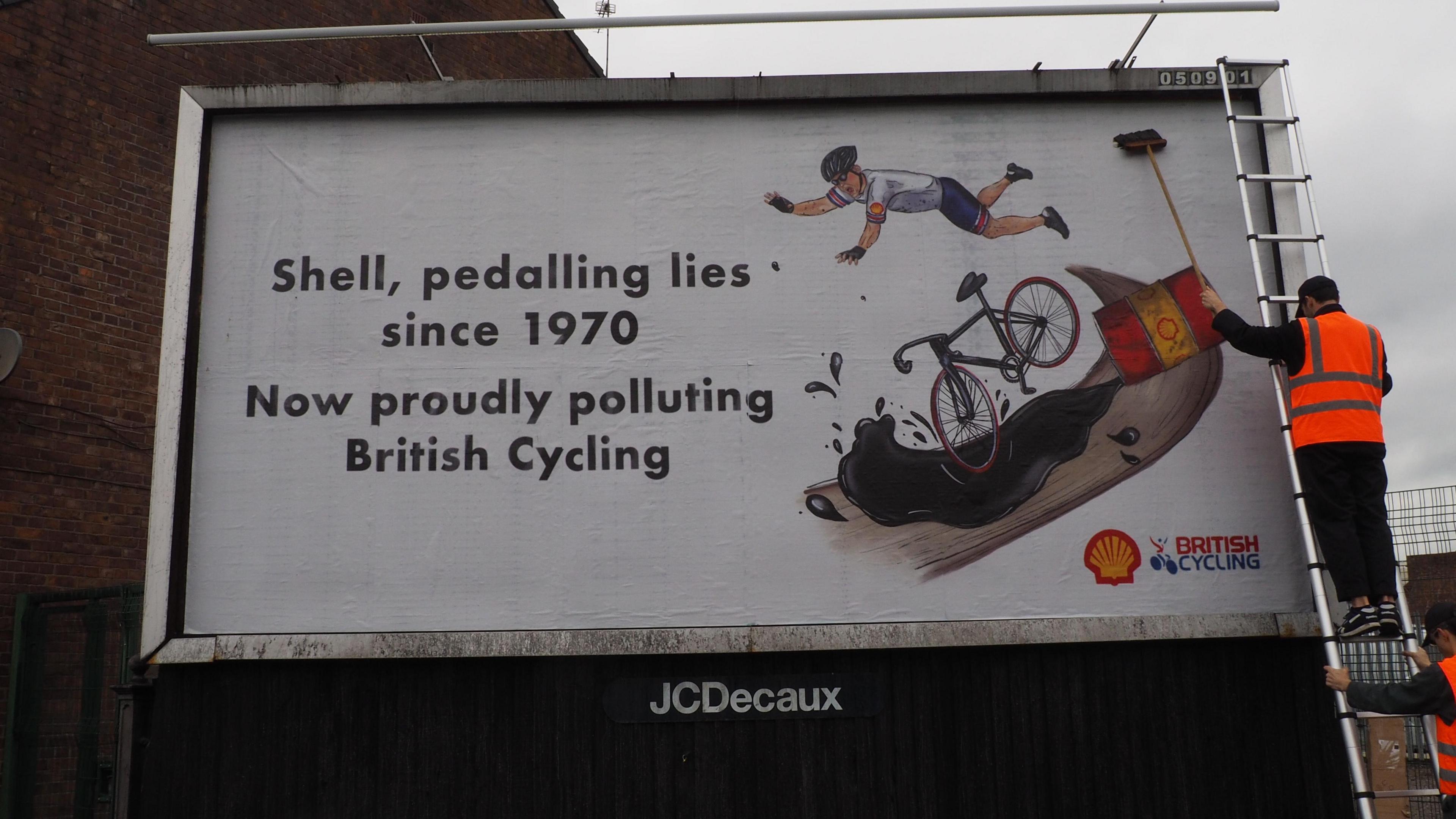Climate activists take over 200 Shell billboards

Brandalism targeted adverts promoting Shell's sponsorship of British Cycling
- Published
An activist group has pasted its own artworks over billboards and bus-stops promoting oil company Shell's sponsorship of British Cycling.
Brandalism said the campaign was over what it said was Shell's recent decision to "row back" on climate pledges.
Some billboards show a cyclist drinking oil from a Shell-branded bottle.
Shell said the "misleading" adverts "completely mischaracterised" its partnership.
Shell says the adverts "completely mischaracterise" it's partnership with British Cycling
British Cycling told the BBC Shell had made a "long-term commitment" to cycling in Britain and was supporting its "long-term sustainability strategy".
Brandalism, which describes itself as a "guerrilla art collective", targeted a number of billboards near British Cycling's headquarters in Stuart Street in Manchester city centre.
The group replaced a total of 200 adverts across Manchester, Reading, Norwich and Bristol, and near Shell’s AGM venue in London, relating to various Shell campaigns.
Shell recently announced that it planned to reduce the "net carbon intensity" of the energy it sells by 15-20% by 2030, compared with a previous target of 20%.
'Fast-track apocalypse'
Co-founder of Brandalism, Tona Merriman, alleged Shell had attempted to "co-opt the emotional connections we have with sport to launder their dirty brand".
"Behind its billion-dollar marketing efforts Shell is back-pedalling on its own green pledges, profiting from our soaring energy bills, and facing legal challenges across the globe for violating human rights," he said.
Brandalism highlighted research from the non-profit organisation Global Witness, external, which suggested that emissions from fossil fuels produced by Shell and four other oil and gas firms could result in 11.5 million excess deaths from heat by 2100.
Shell said the Global Witness research was "strongly disputed".
A spokesperson said: "A key pillar of our partnership is in helping accelerate British Cycling’s journey to net zero and encouraging the uptake of more low- and zero-carbon forms of transport, such as cycling and electric vehicles.”
The company also said it was aiming to achieve net-zero emissions by 2050.
Listen to the best of BBC Radio Manchester on Sounds and follow BBC Manchester on Facebook, external, X, external, and Instagram, external. You can also send story ideas to northwest.newsonline@bbc.co.uk, external
Related topics
- Published14 March
- Published23 May 2023
- Published4 May 2023